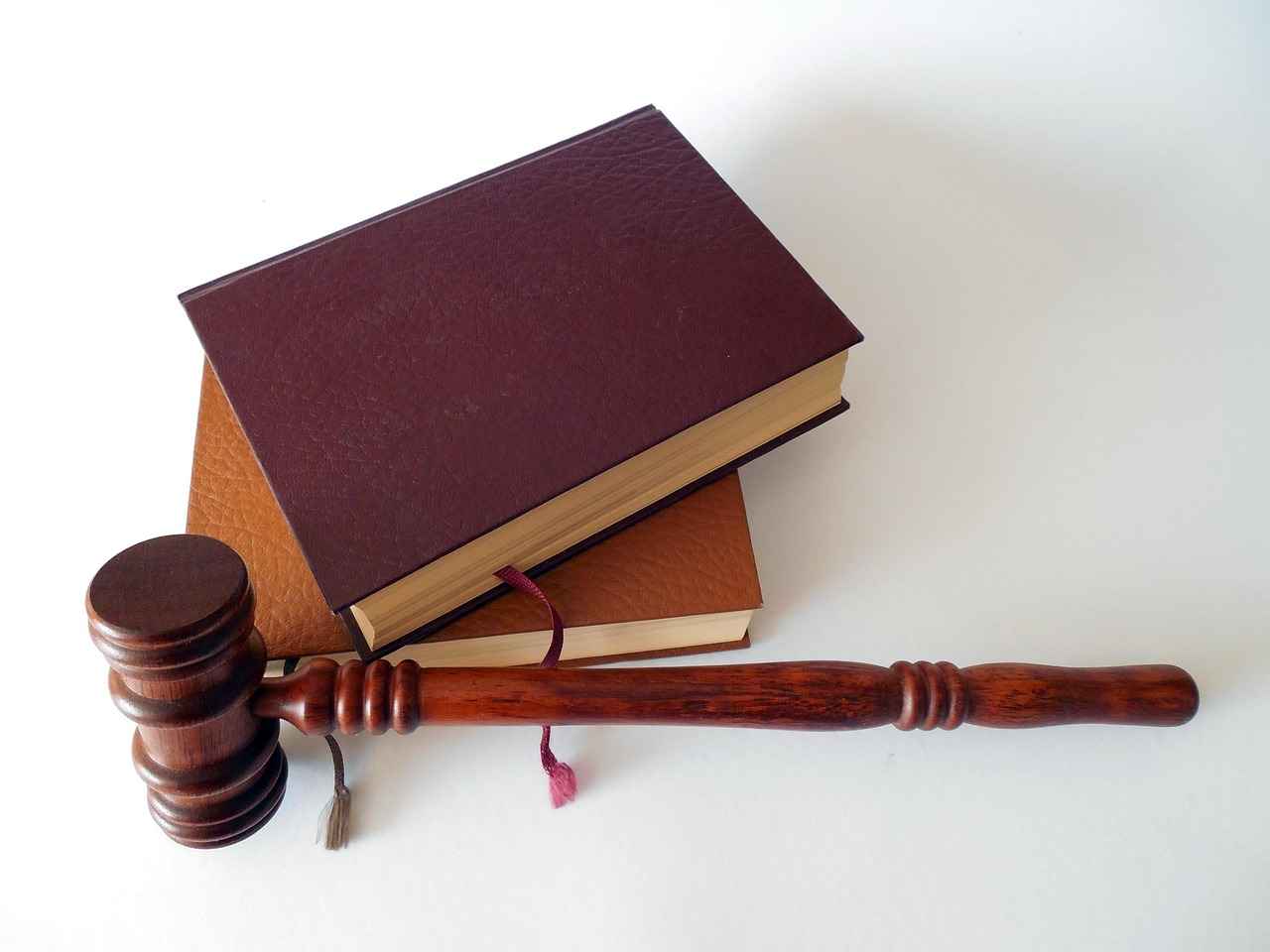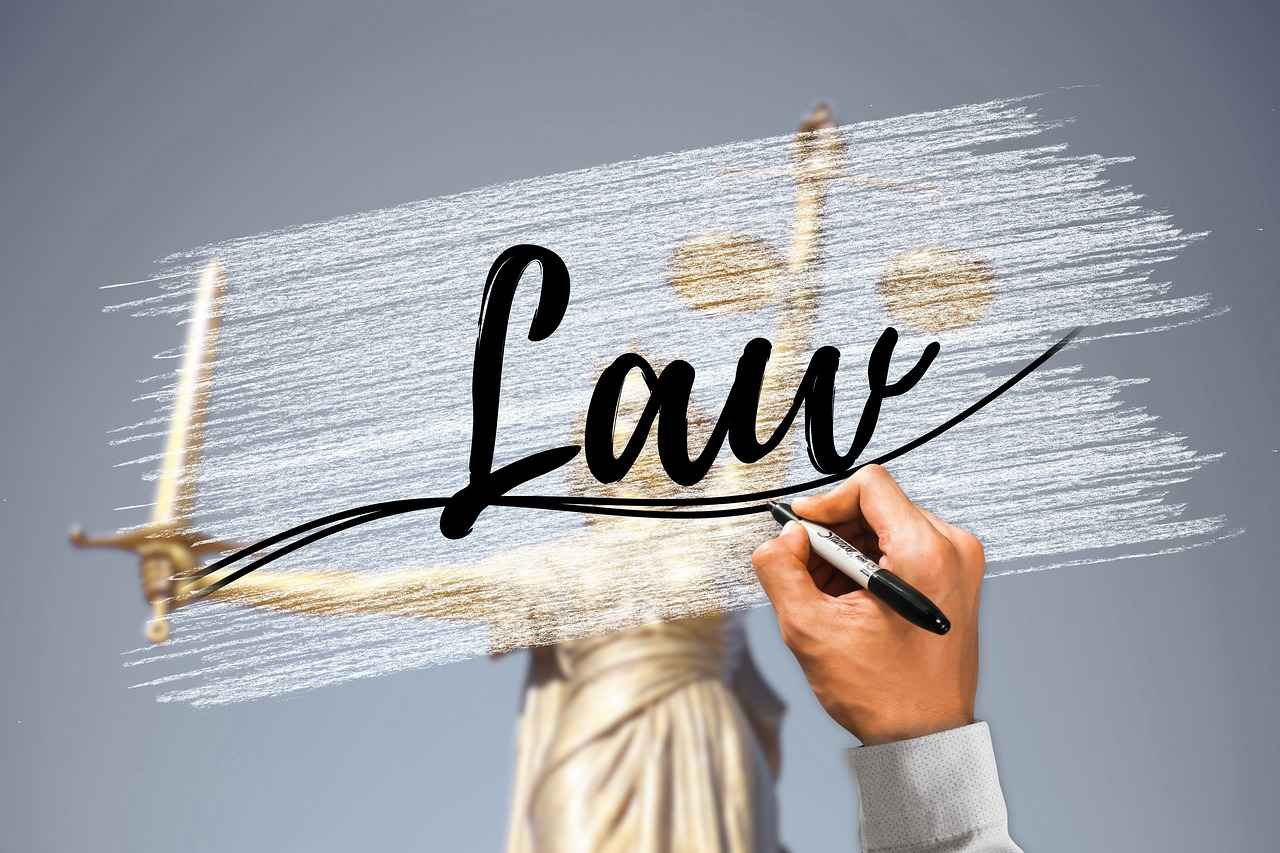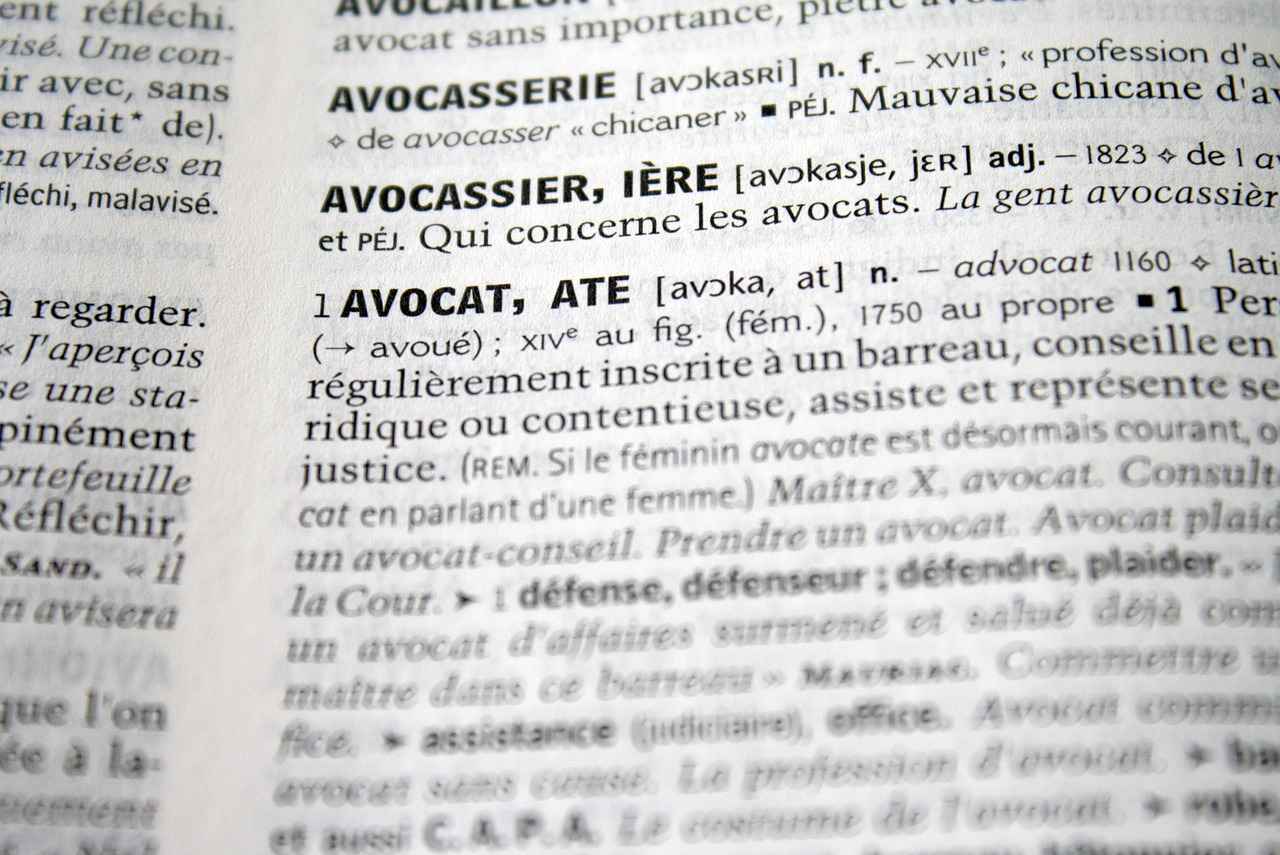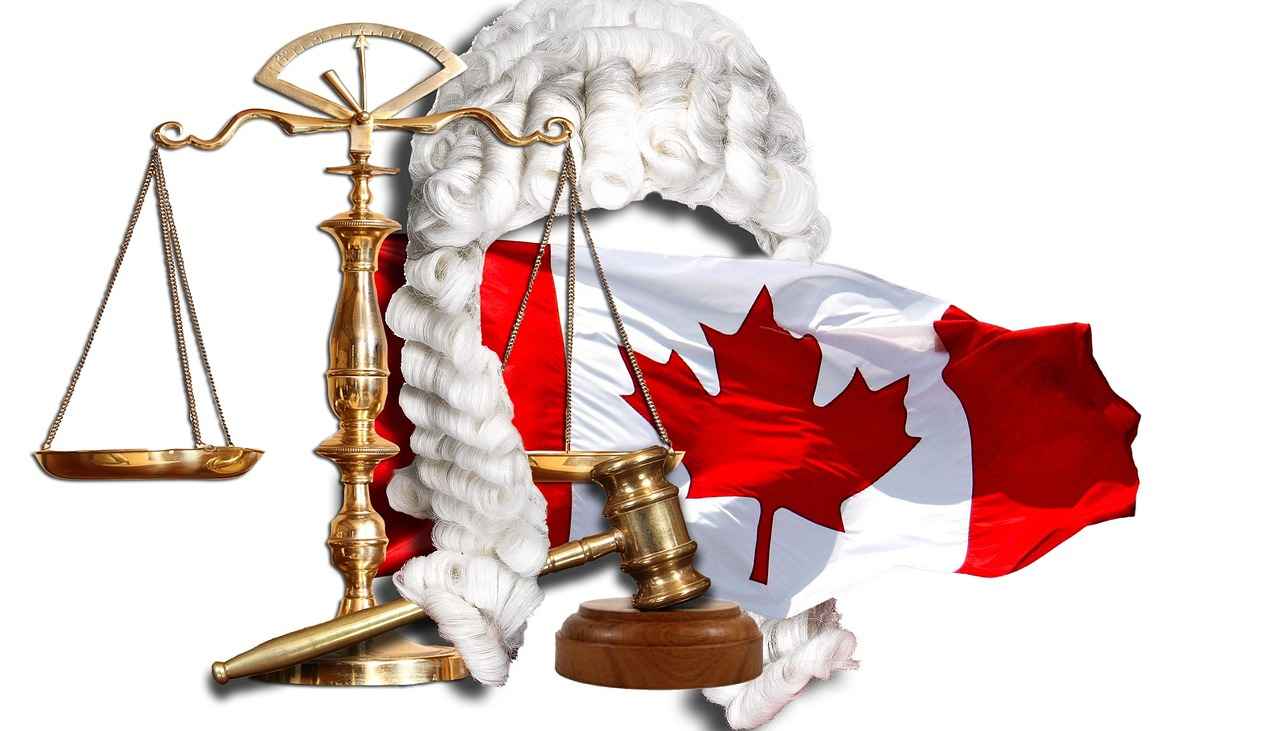This article provides a comprehensive guide on identifying the most qualified and trustworthy legal professionals in Durham, NC, covering various case types and effective strategies for selection.
Finding the right lawyer can be a daunting task, especially in a bustling city like Durham, North Carolina. With numerous legal professionals available, understanding how to choose the best attorney for your specific needs is essential. This guide will delve into the most common types of legal cases and provide expert advice on selecting qualified lawyers.
Personal injury cases arise from accidents and negligence, often leading to significant physical, emotional, and financial distress. To find a reputable personal injury attorney, consider the following:
- Experience: Look for attorneys who specialize in personal injury law and have a proven track record of successful settlements.
- Referrals: Seek recommendations from friends or family who have had positive experiences with personal injury lawyers.
- Consultations: Many attorneys offer free consultations. Use this opportunity to gauge their expertise and approach.
Medical malpractice cases involve negligence by healthcare professionals, making it crucial to select an attorney with specialized knowledge in medical law. To find the right lawyer:
- Specialization: Ensure the attorney has experience specifically in medical malpractice cases.
- Credentials: Look for lawyers with relevant certifications and memberships in professional organizations.
- Case History: Inquire about their past case outcomes to understand their success rate.
Breach of contract cases require attorneys who understand commercial law. To find the right lawyer:
- Industry Knowledge: Choose an attorney familiar with the specific industry related to your contract.
- Negotiation Skills: Look for lawyers with strong negotiation skills, as many breach of contract cases are settled out of court.
- Client Reviews: Research client testimonials to gauge the attorney’s effectiveness and reliability.
Property disputes can arise from various issues, including boundaries and ownership. A qualified real estate attorney can guide you through these legal challenges:
- Local Expertise: Find a lawyer who knows local property laws and regulations.
- Negotiation Experience: Look for attorneys who have successfully resolved property disputes through negotiation or litigation.
- Communication Skills: Ensure the attorney communicates effectively and keeps you informed throughout the process.
Landlord-tenant disputes often require legal intervention. To protect your rights, consider the following:
- Local Law Knowledge: Ensure the attorney is well-versed in local landlord-tenant laws.
- Experience: Look for a lawyer who has handled similar cases and understands the nuances involved.
- Client Feedback: Read reviews and feedback from previous clients to assess their satisfaction with the attorney’s services.
Defamation, including libel and slander, can severely impact reputations. Selecting a lawyer experienced in defamation law is crucial:
- Specialization: Choose an attorney who specializes in defamation and has a strong understanding of media law.
- Track Record: Investigate their success rate in handling defamation cases.
- Consultation: Use initial consultations to assess their approach and understanding of your case.
Employment disputes can involve wrongful termination or discrimination. To find the right lawyer:
- Specialization: Look for attorneys specializing in employment law, particularly in the area relevant to your case.
- Client Reviews: Research reviews from former clients to gauge their experiences.
- Initial Consultation: Take advantage of free consultations to discuss your case and evaluate the attorney’s expertise.
Product liability cases involve injuries from defective products. An attorney with experience in this area can help you pursue claims effectively:
- Industry Knowledge: Choose a lawyer familiar with product liability laws and regulations.
- Case Experience: Look for attorneys who have successfully handled similar cases.
- Reputation: Research their reputation within the legal community and among past clients.
Wrongful death cases are emotionally charged and complex. Selecting an attorney who can handle sensitive matters with compassion is crucial:
- Experience: Look for lawyers who specialize in wrongful death cases and have a track record of success.
- Client-Centered Approach: Choose an attorney who prioritizes the needs and feelings of the bereaved family.
- Communication: Ensure they communicate clearly and promptly throughout the legal process.
Class action lawsuits involve multiple plaintiffs against a common defendant. To find a lawyer experienced in class actions:
- Specialization: Choose an attorney who specializes in class action lawsuits.
- Past Successes: Investigate their history of successful class action cases.
- Client Testimonials: Read reviews from previous clients to assess their satisfaction with the attorney.
Criminal defense cases, including assault and battery, require skilled representation. To choose the right attorney:
- Experience: Look for lawyers with extensive experience in criminal defense.
- Local Knowledge: Ensure they are familiar with local laws and court procedures.
- Consultations: Use initial consultations to assess their approach to your case.
Family law encompasses divorce, child custody, and support matters. Finding an attorney who specializes in family law can help navigate these challenges:
- Specialization: Choose a lawyer with a strong focus on family law.
- Negotiation Skills: Look for attorneys who excel in negotiation, as many family law cases are settled amicably.
- Client Feedback: Research reviews to understand their approach and effectiveness.
Bankruptcy cases require attorneys who understand financial law. To find a knowledgeable lawyer:
- Specialization: Look for lawyers who specialize in bankruptcy law.
- Consultations: Take advantage of free consultations to discuss your financial situation.
- Past Success: Inquire about their history of successful bankruptcy cases.

Understanding Personal Injury Cases
Personal injury cases are a significant aspect of the legal landscape, often arising from accidents and negligence. These cases can involve various incidents, such as car accidents, slip and falls, workplace injuries, and more. The complexity and emotional weight of personal injury claims can be overwhelming, making it essential to find a reputable attorney who specializes in this area of law. A qualified attorney can significantly influence the outcome of your case and the compensation you may receive.
When searching for a personal injury attorney, consider the following strategies:
- Research and Referrals: Start by asking friends, family, or colleagues for recommendations. Personal referrals can lead you to trustworthy attorneys who have a proven track record.
- Online Reviews and Ratings: Websites like Avvo and Yelp provide client reviews and ratings of attorneys. Look for professionals with high ratings and positive feedback.
- Consultation Meetings: Many attorneys offer free initial consultations. Use this opportunity to discuss your case and evaluate their expertise and communication style.
- Experience and Specialization: Ensure the attorney has specific experience in personal injury law. Check their track record for handling cases similar to yours and their success rate in securing fair compensation.
- Fees and Payment Structure: Understand the attorney’s fee structure. Most personal injury lawyers work on a contingency fee basis, meaning they only get paid if you win your case. Clarify any additional costs that may arise during the legal process.
It is crucial to avoid red flags when selecting an attorney:
- Lack of Communication: If an attorney is unresponsive or difficult to reach during initial consultations, this may indicate future communication issues.
- Pressure Tactics: Be wary of attorneys who pressure you to sign contracts or make quick decisions without fully understanding your case.
- Inexperienced or General Practitioners: Avoid attorneys who do not specialize in personal injury law or have limited experience in this area.
In summary, knowing how to find a reputable personal injury attorney can significantly impact your case’s outcome. By conducting thorough research, seeking referrals, and carefully evaluating potential attorneys, you can enhance your chances of securing the compensation you deserve.

Medical Malpractice: Finding the Right Lawyer
When dealing with medical malpractice, it is essential to understand that these cases involve allegations of negligence against healthcare professionals. This can include doctors, nurses, and other medical staff who fail to provide the standard of care expected in their field, resulting in harm to patients. Given the complexity of these cases, finding the right lawyer is critical for ensuring that your rights are protected and that you have the best chance of receiving fair compensation.
To begin your search for a qualified medical malpractice attorney, consider the following key factors:
- Specialization in Medical Law: Look for attorneys who specialize in medical malpractice and have a proven track record in handling similar cases. These professionals will have the necessary knowledge of medical standards and legal protocols that are crucial for building a strong case.
- Experience and Success Rate: Research the attorney’s experience in the field. An attorney with years of experience and a high success rate in winning settlements or verdicts can provide you with the confidence you need during this challenging time.
- Client Reviews and Testimonials: Read reviews from previous clients to gauge their satisfaction with the attorney’s services. Positive testimonials can indicate a lawyer’s ability to communicate effectively and advocate passionately for their clients.
- Initial Consultation: Many attorneys offer a free initial consultation. Use this opportunity to assess their communication style, approach to your case, and overall compatibility. This meeting can provide insight into their legal strategy and how they plan to handle your case.
- Fee Structure: Understand the attorney’s fee structure upfront. Most medical malpractice attorneys work on a contingency fee basis, meaning they only get paid if you win your case. Ensure you are clear about any additional costs that may arise during the legal process.
It is also essential to be aware of the red flags that may indicate an attorney is not the right fit for your medical malpractice case:
- Lack of Experience: Be cautious of attorneys who do not have specific experience in medical malpractice cases, as they may not fully understand the complexities involved.
- Pressure Tactics: Avoid attorneys who pressure you into making quick decisions or signing contracts without fully explaining the implications.
- Poor Communication: If an attorney is unresponsive or fails to communicate clearly during the initial consultation, it may be a sign of how they will handle your case.
In large metropolitan areas such as New York City, Los Angeles, and Chicago, there are numerous legal professionals available, making it crucial to conduct thorough research. Utilize online legal directories, local bar association referrals, and personal recommendations to compile a list of potential candidates. Don’t hesitate to ask questions about their experience and approach to medical malpractice cases during consultations.
Ultimately, the right attorney can make all the difference in the outcome of your medical malpractice case. By focusing on specialization, experience, and client satisfaction, you can find a legal professional who will advocate for your rights and help you navigate the complexities of the legal system effectively.

Breach of Contract: Legal Representation Matters
Breach of contract cases are often complex and can have significant implications for both individuals and businesses. When an agreement is broken, whether it involves a service, product, or any form of obligation, it can lead to financial losses and strained relationships. Therefore, it is crucial to have a skilled attorney who specializes in commercial law to navigate the intricacies of these cases.
To find the right lawyer for a breach of contract case, consider the following strategies:
- Research Specialization: Look for attorneys who specifically focus on contract law. Their expertise is vital for understanding the nuances of commercial agreements and the legal remedies available.
- Check Credentials: Verify the lawyer’s education, bar association membership, and any additional certifications related to commercial law. A reputable attorney will often have a track record of handling similar cases successfully.
- Read Reviews and Testimonials: Online reviews can provide insights into a lawyer’s reputation and the experiences of previous clients. Look for feedback on their communication skills, responsiveness, and overall effectiveness.
- Consultation Meetings: Schedule consultations with potential attorneys. This initial meeting is an opportunity to gauge their understanding of your case and their approach to handling it. Pay attention to how well they listen and address your concerns.
- Assess Communication Skills: A good lawyer should be able to explain complex legal terms in simple language. Clear communication is essential for a successful attorney-client relationship.
- Evaluate Fees: Understand the attorney’s fee structure. Some lawyers charge by the hour, while others may work on a contingency basis. Make sure you are comfortable with the financial arrangements before proceeding.
- Look for Local Expertise: Hiring a lawyer familiar with local laws and regulations can be beneficial. They will have a better understanding of how courts in your area operate and any specific nuances related to breach of contract cases.
In addition to these strategies, it’s essential to be aware of red flags when hiring a lawyer for breach of contract cases:
- Lack of Experience: Avoid attorneys who do not have a proven track record in handling breach of contract cases. Experience is a key factor in achieving favorable outcomes.
- Poor Communication: If a lawyer is unresponsive or fails to communicate clearly during initial interactions, it may indicate future challenges in your case.
- Unrealistic Promises: Be cautious of lawyers who guarantee specific outcomes. Legal cases are inherently unpredictable, and a reputable attorney will provide a realistic assessment of your situation.
- High Pressure Tactics: If an attorney pressures you to sign a contract or make a quick decision, it’s a significant red flag. A trustworthy lawyer will give you the time you need to make informed choices.
In summary, finding the right legal representation for breach of contract cases is crucial for enforcing agreements and recovering damages. By conducting thorough research, checking credentials, and being aware of potential red flags, individuals can secure the assistance of a qualified attorney who will advocate for their best interests.

Property Disputes and Real Estate Attorneys
Property disputes can be a significant source of stress and confusion for property owners and tenants alike. These disputes often arise from various issues, including boundary disagreements, ownership claims, and disputes over easements or rights of way. Understanding how to navigate these complex legal waters is essential for anyone involved in real estate transactions or property ownership.
When facing a property dispute, the first step is to consult with a qualified real estate attorney. These legal professionals specialize in property law and can provide invaluable guidance in resolving conflicts. They can help clarify the legal aspects of your situation, ensuring that you understand your rights and obligations under the law.
One common cause of property disputes is boundary issues. Neighbors may disagree about where one property ends and another begins, leading to conflicts that can escalate if not handled properly. A real estate attorney can assist in reviewing property deeds, surveys, and other relevant documents to determine the true boundaries of the properties involved.
Another frequent issue is ownership disputes. These can arise in various contexts, such as inheritance situations where multiple heirs claim ownership of a property. In such cases, an attorney can help mediate discussions and negotiate settlements that respect the rights of all parties involved. They can also represent you in court if the dispute escalates to litigation.
Additionally, property disputes may involve easements, which are legal rights to use another person’s land for a specific purpose. Conflicts can arise over the scope of these easements or whether they still apply. An experienced attorney can help clarify these rights and work to resolve any misunderstandings.
In metropolitan areas like New York City or Los Angeles, where property values are high and the real estate market is competitive, having a knowledgeable attorney is even more crucial. They can help you navigate local laws and regulations, which can vary significantly from one city to another. Look for attorneys who have a strong track record in handling property disputes in your specific area, as familiarity with local laws can make a significant difference in the outcome of your case.
When selecting a real estate attorney, consider the following practical tips:
- Check Credentials: Ensure the attorney is licensed to practice law in your state and has experience specifically in real estate law.
- Read Reviews: Look for online reviews and testimonials from previous clients to gauge the attorney’s reputation and effectiveness.
- Consult Multiple Attorneys: Don’t hesitate to consult several attorneys before making your decision. This will give you a better sense of their communication style and approach to your case.
- Ask About Fees: Be clear about the attorney’s fee structure. Some may charge hourly rates, while others might work on a contingency basis.
- Trust Your Instincts: Choose an attorney you feel comfortable with and who communicates clearly. A good attorney-client relationship is vital for navigating legal challenges.
In conclusion, property disputes can be complex and emotionally taxing. However, with the right legal guidance, you can navigate these challenges effectively. A qualified real estate attorney can provide the expertise needed to resolve disputes amicably or represent you in court if necessary. By following the tips outlined above, you can find a trustworthy attorney who will advocate for your interests and help you achieve a favorable resolution.

Landlord-Tenant Disputes: Know Your Rights
Landlord-tenant disputes are a common source of conflict in the rental housing market. These disputes can arise from various issues, including late rent payments, property maintenance, security deposits, and lease violations. Understanding your rights as a tenant or landlord is essential to navigate these challenges effectively. Legal intervention may often be necessary to resolve such conflicts, and knowing how to find a qualified attorney can significantly impact the outcome of your case.
In many instances, local laws govern landlord-tenant relationships, and these laws can vary significantly from one jurisdiction to another. As a tenant, it is crucial to be aware of your rights regarding habitability, privacy, and the proper process for eviction. Conversely, landlords must understand their rights concerning property management and tenant behavior. Ignorance of these laws can lead to severe consequences, including financial loss and legal penalties.
When facing a landlord-tenant dispute, the first step is to gather all relevant documentation, including the lease agreement, correspondence with the landlord, and any records of payments made. This documentation will be invaluable when discussing your case with a legal professional. It is advisable to seek an attorney who specializes in landlord-tenant law to ensure they have the necessary expertise to handle your case effectively.
To find a reputable attorney in your area, consider the following strategies:
- Referrals: Ask friends, family, or colleagues if they can recommend a lawyer with experience in landlord-tenant disputes.
- Online Reviews: Websites like Avvo, Martindale-Hubbell, and Google Reviews can provide insights into a lawyer’s reputation and past client experiences.
- Bar Association Listings: Local or state bar associations often have directories of attorneys categorized by their areas of specialization.
- Consultations: Many attorneys offer free initial consultations. Use this opportunity to gauge their expertise and approach to your case.
When evaluating potential attorneys, pay attention to their credentials, including their experience in landlord-tenant law and any relevant certifications. Additionally, inquire about their success rate in similar cases and their approach to resolving disputes—whether they prefer negotiation, mediation, or litigation.
It’s also crucial to be aware of red flags when hiring an attorney. Be cautious of lawyers who make unrealistic promises about the outcome of your case or those who pressure you into making quick decisions. A trustworthy attorney will provide you with a realistic assessment of your situation and outline the potential risks and benefits of various legal strategies.
In conclusion, landlord-tenant disputes can be complex and emotionally charged. However, by understanding your rights and taking the time to find a knowledgeable attorney, you can protect your interests and navigate the legal landscape more effectively. Remember, the right legal representation can make a significant difference in the resolution of your dispute.

Defamation Cases: Choosing the Right Advocate
Defamation encompasses both libel (written statements) and slander (spoken statements) that unjustly harm an individual’s reputation. In today’s digital age, where information spreads rapidly, the repercussions of defamation can be particularly damaging. Victims may face challenges in their personal and professional lives, making it essential to address these issues promptly and effectively.
When seeking to navigate the complexities of defamation cases, selecting the right attorney is crucial. Here are some strategies to ensure you find a qualified legal advocate:
- Experience in Defamation Law: Look for attorneys who specialize in defamation law. Their experience in handling similar cases can provide insights into the nuances of the law and the best strategies for your situation.
- Track Record of Success: Research the lawyer’s past cases. A successful track record in defamation cases can be a strong indicator of their capability to represent you effectively.
- Client Reviews and Testimonials: Online reviews and testimonials can provide valuable information about an attorney’s reputation and how they handle cases. Websites like Avvo and Martindale-Hubbell can be useful resources.
- Initial Consultations: Many attorneys offer free initial consultations. Use this opportunity to discuss your case and gauge their understanding of defamation law. Pay attention to how they communicate and whether they listen to your concerns.
- Understanding of Media Law: Given the increasing intersection of defamation and media, an attorney with knowledge of media law can be particularly beneficial, especially if your case involves public figures or online platforms.
- Fee Structure: Understand the attorney’s fee structure before hiring. Some may work on a contingency basis, meaning they only get paid if you win your case, while others may charge hourly rates. Clarifying this upfront can prevent misunderstandings later.
In addition to these factors, be aware of red flags when selecting an attorney:
- Lack of Communication: If an attorney is difficult to reach or does not respond promptly to your inquiries, it may indicate a lack of commitment to your case.
- Pressure to Settle: Be cautious if an attorney pushes you to settle quickly without thoroughly exploring your options. A good lawyer will advocate for your best interests, even if it means taking the case to trial.
- Vague Promises: Avoid attorneys who make grand promises about the outcome of your case. While confidence is important, no lawyer can guarantee results in legal matters.
Defamation cases can be emotionally charged and legally complex, requiring an attorney who not only understands the law but also empathizes with your situation. By following the above guidelines, you can enhance your chances of finding a competent advocate who will fight for your rights and help restore your reputation.

Employment Disputes: Finding Specialized Lawyers
Employment disputes can arise in various forms, often leading to significant emotional and financial stress for those involved. Common issues include wrongful termination, discrimination, and harassment. Navigating these complex legal waters requires the expertise of a specialized employment lawyer who understands the intricacies of employment law.
When searching for a lawyer in this field, consider the following steps to ensure you find the right professional to represent your interests:
- Research Local Employment Lawyers: Start by researching lawyers who specialize in employment law within your area. Utilize online platforms, such as Avvo and FindLaw, which provide listings and reviews of attorneys based on their specialties. Look for lawyers who have a strong track record in handling cases similar to yours.
- Check Credentials: Verify the lawyer’s credentials, including their education, years of experience, and any relevant certifications. Membership in professional organizations, such as the National Employment Lawyers Association (NELA), can also indicate a commitment to staying updated on employment law.
- Read Reviews and Testimonials: Online reviews can provide insight into a lawyer’s reputation and client satisfaction. Look for testimonials that specifically mention the lawyer’s communication skills, effectiveness, and the outcomes of past cases.
- Initial Consultation: Most employment lawyers offer a free initial consultation. Use this opportunity to discuss your case and gauge the lawyer’s understanding of employment law. Pay attention to how they communicate and whether they take the time to answer your questions thoroughly.
- Discuss Fees and Payment Structures: Understanding the lawyer’s fee structure is crucial. Some employment lawyers work on a contingency basis, meaning they only get paid if you win your case. Others may charge hourly rates or flat fees. Make sure you are clear on all potential costs before hiring.
- Assess Comfort and Compatibility: It’s essential to feel comfortable with your lawyer, as you will be sharing personal information about your employment situation. Ensure that you feel heard and respected during your interactions.
Employment disputes can be daunting, but with the right legal representation, you can navigate these challenges effectively. A specialized employment lawyer can help you seek justice and compensation for any wrongful actions taken against you. Remember to take the time to research and choose a lawyer who aligns with your needs and understands the complexities of employment law.

Product Liability: Legal Expertise Needed
Product liability is a crucial area of law that addresses injuries and damages caused by defective or unsafe products. These cases can arise from various issues, including design flaws, manufacturing defects, or inadequate warnings and instructions. When consumers are harmed due to these defects, they have the right to seek compensation from the responsible parties, which often include manufacturers, distributors, and retailers. Understanding the complexities of product liability law is essential, and having the right legal representation can significantly impact the outcome of your case.
Why You Need an Experienced Attorney
Engaging an attorney who specializes in product liability is vital because these cases can be intricate and challenging. An attorney with a deep understanding of product liability law can help you navigate the legal landscape effectively. They will assess the specifics of your case, gather necessary evidence, and build a compelling argument to support your claim. Their expertise can also help you understand the nuances of liability, such as whether the defect was due to design, manufacturing, or marketing failures.
Identifying Qualified Product Liability Attorneys
When searching for a product liability attorney, consider the following methods:
- Referrals: Ask friends, family, or colleagues for recommendations. Personal experiences can provide valuable insights.
- Online Research: Utilize legal directories and platforms like Avvo, Martindale-Hubbell, or FindLaw to find attorneys who specialize in product liability.
- Bar Association Listings: Check with your state or local bar association for a list of qualified attorneys in your area.
Credentials to Look For
When evaluating potential attorneys, consider their credentials:
- Experience: Look for attorneys with a proven track record in handling product liability cases specifically.
- Specialization: Ensure they are certified or recognized in personal injury or product liability law.
- Trial Experience: An attorney with trial experience can be more effective in negotiations and court proceedings.
Red Flags to Avoid
While searching for a product liability attorney, be aware of potential red flags:
- Lack of Transparency: If an attorney is unwilling to discuss fees or provide clear information about their services, consider it a warning sign.
- Negative Reviews: Research online reviews and testimonials. Consistent negative feedback may indicate a lack of professionalism or poor results.
- High Pressure Tactics: Be cautious of attorneys who rush you into signing contracts or making decisions without allowing you to consider your options.
The Importance of Initial Consultations
Many attorneys offer free initial consultations, which can be a valuable opportunity for you to assess their suitability for your case. During this meeting, you can discuss the specifics of your situation, ask questions, and gauge their communication style and approach. Pay attention to how well they listen and how clearly they explain the legal process. This initial interaction can help you determine if you feel comfortable moving forward with them as your legal representative.
Understanding the Legal Process
Once you decide to hire an attorney, they will guide you through the legal process, which typically involves:
- Investigation: Your attorney will conduct a thorough investigation, gathering evidence to support your claim.
- Filing a Claim: They will file a claim with the appropriate court and represent you throughout the litigation process.
- Negotiation: Many product liability cases are settled out of court. Your attorney will negotiate with the opposing party to secure a fair settlement.
- Trial: If a settlement cannot be reached, your attorney will be prepared to take your case to trial, advocating for your rights and interests.
Conclusion
In summary, product liability cases require specialized legal expertise. By finding a qualified attorney, you can enhance your chances of receiving the compensation you deserve. Remember to conduct thorough research, assess credentials, and be mindful of red flags during your search. With the right legal representation, you can navigate the complexities of product liability law with confidence.

Wrongful Death Cases: Compassionate Representation
Wrongful death cases are among the most emotionally charged and complex legal matters individuals may face. These cases arise when a person’s death is caused by the negligence or wrongful act of another party, leading to significant emotional and financial distress for the surviving family members. In such sensitive situations, it is crucial to select an attorney who can handle these matters with compassion while simultaneously advocating fiercely for justice and fair compensation.
When searching for a lawyer to represent you in a wrongful death case, consider the following key factors:
- Experience and Specialization: Look for an attorney who specializes in wrongful death and personal injury law. Their experience in handling similar cases can provide invaluable insights and strategies tailored to your situation.
- Track Record: Investigate the attorney’s history of settlements and verdicts in wrongful death cases. A successful track record can indicate their ability to negotiate effectively and win cases in court.
- Compassionate Approach: Given the emotional nature of these cases, it is essential to find an attorney who demonstrates empathy and understands the grief you are experiencing. A compassionate lawyer will be more attentive to your needs and concerns throughout the legal process.
- Client Testimonials: Review feedback from previous clients to gauge their experiences. Positive testimonials can provide insight into the attorney’s communication style, professionalism, and effectiveness.
- Initial Consultation: Many attorneys offer free consultations. Use this opportunity to assess their communication skills and approach to your case. Pay attention to how well they listen to your concerns and explain the legal process.
In addition to these factors, it’s important to be aware of potential red flags when selecting a wrongful death attorney:
- High Pressure Tactics: Be cautious of attorneys who pressure you to sign contracts or make quick decisions. A reputable lawyer will allow you to take your time in making informed choices.
- Lack of Transparency: Avoid attorneys who are vague about their fees or the legal process. A trustworthy lawyer will provide clear information regarding their billing practices and what to expect during your case.
- Limited Communication: If an attorney is difficult to reach or slow to respond during initial consultations, it may indicate how they will handle your case moving forward.
Finding the right attorney for a wrongful death case is not just about legal expertise; it is also about finding someone who can provide the support and understanding you need during such a challenging time. By carefully assessing potential lawyers based on their experience, track record, and client feedback, you can make an informed decision that prioritizes both justice and compassion.

Class Action Lawsuits: Navigating Collective Claims
Class action lawsuits represent a significant legal mechanism that allows a group of individuals, known as plaintiffs, to collectively seek justice against a common defendant, typically a corporation or an organization. These lawsuits are particularly effective in cases where individual claims may be too small to pursue independently, yet collectively, they can represent substantial damages. Examples include consumer fraud, environmental disasters, and defective products.
When considering participation in a class action lawsuit, it is essential to understand the process involved. The first step is to identify whether you have been affected by a situation that has impacted a larger group. This could involve issues such as unfair business practices, employment discrimination, or harmful products. Once you ascertain that you may have a valid claim, the next crucial step is to find a lawyer who specializes in class action lawsuits.
Finding the right attorney can make a significant difference in the outcome of your case. Here are some practical tips on how to locate and select an experienced lawyer:
- Research Specialization: Look for lawyers who have a proven track record in class action cases. Not all attorneys are equipped to handle the complexities involved in these lawsuits.
- Check Credentials: Verify the attorney’s credentials, including their education, years of experience, and any relevant certifications. Membership in professional organizations such as the American Association for Justice can also be a positive indicator.
- Read Reviews and Testimonials: Online reviews and client testimonials can provide insight into an attorney’s reputation and success rate in handling class action lawsuits.
- Consult Multiple Attorneys: Don’t settle for the first lawyer you meet. Consult with several attorneys to compare their approaches, fees, and overall comfort level.
- Discuss Fees Upfront: Class action attorneys often work on a contingency fee basis, meaning they only get paid if you win. Ensure you understand their fee structure before proceeding.
Additionally, it’s wise to be aware of potential red flags when selecting a lawyer. If an attorney makes unrealistic promises about the outcome of your case or pressures you to sign an agreement without fully explaining the terms, these may be signs to proceed with caution.
In major metropolitan areas like New York City, Los Angeles, and Chicago, the competition among lawyers can be fierce. Use legal directories such as Avvo, FindLaw, or Martindale-Hubbell to find qualified attorneys in your area. These platforms often provide ratings, reviews, and detailed profiles that can help you make an informed decision.
In summary, class action lawsuits are a powerful tool for individuals seeking justice against larger entities. By taking the time to find a qualified attorney who specializes in this area, you can enhance your chances of a favorable outcome while navigating the complexities of the legal system.

Criminal Defense: Assault, Battery, and More
When facing criminal charges such as assault and battery, the stakes are incredibly high. A conviction can lead to severe penalties, including imprisonment, fines, and a permanent criminal record. Therefore, having skilled representation is not just important; it is essential. The right attorney can make a significant difference in the outcome of your case, potentially reducing charges or securing a favorable plea deal.
In the realm of criminal defense, it is crucial to understand that not all attorneys are created equal. Here are some key considerations for selecting the best criminal defense attorney for your needs:
- Experience in Criminal Law: Look for an attorney who specializes in criminal defense, particularly in cases similar to yours. Their experience will enable them to navigate the complexities of the legal system effectively.
- Track Record: Research the attorney’s past cases and outcomes. A lawyer with a history of successful defenses in assault and battery cases is likely to be more effective.
- Client Reviews and Testimonials: Online reviews and testimonials can provide insight into an attorney’s reputation and how they handle cases. Look for feedback regarding their communication skills and case outcomes.
- Initial Consultation: Most attorneys offer a free initial consultation. Use this opportunity to ask questions about their strategy, experience, and fees. This meeting can help you gauge their approach and compatibility with your case.
- Communication Skills: A good attorney should be able to explain complex legal concepts in a way you can understand. They should also be responsive to your inquiries and keep you updated on your case.
- Fees and Payment Structures: Understand the attorney’s fee structure upfront. Some may charge a flat fee, while others may bill hourly. Be wary of any hidden fees and ensure that you are comfortable with the financial aspects before proceeding.
In major metropolitan areas like New York City, Los Angeles, and Chicago, finding a qualified criminal defense attorney can be challenging due to the sheer number of legal professionals available. Here are some strategies to streamline your search:
- Online Legal Directories: Websites like Avvo, FindLaw, and Martindale-Hubbell allow you to search for attorneys by specialty, location, and client ratings. These platforms often feature detailed profiles, including practice areas and client reviews.
- Referrals: Ask friends, family, or colleagues for recommendations. Personal referrals can provide trustworthy insights into an attorney’s abilities and ethics.
- Local Bar Associations: Many local bar associations have lawyer referral services that can connect you with qualified attorneys in your area.
- Legal Aid Organizations: If you are unable to afford a private attorney, consider reaching out to legal aid organizations that provide services for low-income individuals.
When evaluating potential attorneys, be aware of red flags that may indicate a lack of professionalism or expertise:
- High-Pressure Sales Tactics: Be cautious of attorneys who pressure you into signing a contract immediately. A reputable lawyer will give you time to consider your options.
- Lack of Transparency: If an attorney is vague about their fees or the legal process, it may be a sign of unprofessionalism.
- Negative Reviews: While every attorney may have a few dissatisfied clients, a pattern of negative reviews should raise concerns.
In summary, when facing criminal charges such as assault and battery, selecting the right attorney is critical. By considering their experience, track record, and communication skills, and utilizing various resources, you can find a qualified legal professional who will advocate for your rights. Remember that your future may depend on the choices you make today, so take the time to choose wisely.

Family Law: Divorce and Child Custody Issues
Family law is a critical area of legal practice that addresses various issues related to family relationships, including divorce, child custody, child support, and spousal support. Navigating these emotional and often complex situations can be overwhelming for individuals and families. Therefore, it is essential to find an attorney who specializes in family law to help guide you through these legal challenges.
When seeking a family law attorney, consider the following factors:
- Experience and Specialization: Look for attorneys who specialize in family law and have extensive experience handling cases similar to yours. An attorney with a proven track record in divorce and custody cases will be better equipped to advocate for your interests.
- Reputation: Research potential lawyers through online reviews, testimonials, and professional ratings. Websites like Avvo and Lawyers.com can provide insights into an attorney’s reputation and client satisfaction.
- Initial Consultation: Many family law attorneys offer free initial consultations. Use this opportunity to gauge their approach, communication style, and whether you feel comfortable working with them.
- Communication Skills: Effective communication is crucial in family law cases. Ensure that the attorney is responsive, listens to your concerns, and explains legal concepts clearly.
- Fee Structure: Discuss the attorney’s fee structure upfront. Some attorneys charge hourly rates, while others may offer flat fees for specific services. Understanding the costs involved can help you avoid unexpected financial burdens.
In major metropolitan areas like New York City, Los Angeles, and Chicago, the demand for family law attorneys is high, making it essential to conduct thorough research. Look for local bar associations or legal aid organizations that can provide referrals to qualified attorneys in your area.
When dealing with divorce, it is vital to understand the different types of divorce, such as contested and uncontested divorce. An experienced attorney can help you determine the best approach based on your circumstances. Additionally, issues related to child custody can be particularly contentious. An attorney who understands the nuances of custody arrangements, including joint custody and sole custody, can advocate effectively for your parental rights.
In cases involving child support and spousal support (alimony), having a knowledgeable attorney can ensure that the financial aspects are handled fairly. They can help you understand the factors that influence support calculations, including income, living expenses, and the needs of the child.
Ultimately, finding the right family law attorney can make a significant difference in the outcome of your case. By considering the factors mentioned above and conducting thorough research, you can secure a legal advocate who will fight for your rights and help you navigate the complexities of family law.

Bankruptcy: Seeking Financial Relief
Bankruptcy is a complex legal process that provides individuals and businesses with a fresh start by discharging debts that they are unable to pay. It is essential to understand that filing for bankruptcy is not merely a financial decision but a legal one that requires the guidance of an experienced attorney. When seeking financial relief through bankruptcy, the right attorney can make a significant difference in navigating the legal landscape and ensuring that your rights are protected.
Understanding Bankruptcy Types
There are several types of bankruptcy, with Chapter 7 and Chapter 13 being the most common for individuals. Chapter 7 allows for the liquidation of non-exempt assets to pay creditors, while Chapter 13 involves a repayment plan that allows debtors to keep their property while repaying debts over a period of three to five years. Understanding these options is crucial, and a knowledgeable attorney can help you select the best path based on your financial situation.
Finding the Right Bankruptcy Attorney
When looking for a bankruptcy attorney, consider the following steps:
- Research Credentials: Look for attorneys who specialize in bankruptcy law and have a good standing with the American Bar Association. Check their experience level and any certifications they may have.
- Read Reviews: Online platforms like Avvo and Martindale-Hubbell provide client reviews and ratings. Look for attorneys with positive feedback from former clients.
- Schedule Consultations: Many attorneys offer free initial consultations. Use this opportunity to ask questions about their experience, fees, and approach to your case.
- Evaluate Communication: Choose an attorney who communicates clearly and promptly. You should feel comfortable discussing your financial situation with them.
Red Flags to Avoid
While searching for a bankruptcy attorney, be wary of the following red flags:
- High Pressure Sales Tactics: If an attorney pressures you to file immediately or makes unrealistic promises about outcomes, consider looking elsewhere.
- Lack of Transparency: If an attorney is unwilling to provide clear information about their fees or the bankruptcy process, it may indicate a lack of professionalism.
- Negative Reviews: Pay attention to any consistent negative feedback regarding the attorney’s communication, responsiveness, or outcomes.
Understanding Bankruptcy Fees
Bankruptcy attorneys typically charge a flat fee for their services, which can vary based on location and complexity of the case. Be sure to discuss fees upfront and understand what is included in the fee structure. Some attorneys may offer payment plans, which can be beneficial if you’re already facing financial difficulties.
Conclusion
In summary, navigating bankruptcy requires the expertise of a qualified attorney who understands the intricacies of financial law. By conducting thorough research, asking the right questions, and being aware of red flags, you can find a trustworthy lawyer who will guide you through the bankruptcy process and help you achieve financial relief.
Frequently Asked Questions
- How do I choose the right lawyer for my case?
Choosing the right lawyer involves researching their experience, expertise, and client reviews. It’s like finding the perfect pair of shoes; you want something that fits your needs and feels comfortable!
- What should I expect during my first meeting with a lawyer?
During your first meeting, expect to discuss your case details, the lawyer’s fees, and their approach. Think of it as a first date where both parties assess if they’re a good match!
- Are consultations with lawyers usually free?
Many lawyers offer free initial consultations, allowing you to gauge their suitability without financial commitment. It’s like test-driving a car before you buy it!
- What types of cases do personal injury lawyers handle?
Personal injury lawyers typically handle cases involving accidents, negligence, and injuries. If you’ve been hurt due to someone else’s actions, they’re your go-to advocates!
- How long does it take to resolve a legal case?
The timeline for resolving a legal case can vary widely based on complexity and court schedules. It’s often a marathon, not a sprint, so patience is key!














